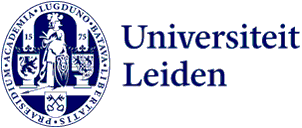
Championing educational innovation: new Leiden Teachers’ Academy Fellows
Leiden Teachers’ Academy is proud to welcome six new fellows: Dennis Braekmans, Arjan Louwen, Noa Schonmann, Anouk van der Weiden, Deepak Balak and Joeri Reinders. They will share their expertise with the rest of the university and launch innovative education projects.
Each year, Leiden Teachers’ Academy (LTA) selects new Teaching Fellows from faculty-nominated teaching staff. The LTA now includes 26 Teaching Fellows who actively promote educational innovation, exchange experiences and collaborate with colleagues within and beyond their disciplines. The winner of the LUS Teaching Prize, this year archaeologist Arjan Louwen, automatically becomes a Teaching Fellow. Each Teaching Fellows receives a 25,000-euro grant to support their educational innovation project(s). Five of the new members have already submitted a project.
Deepak Balak – Dermatologist, Education Director and Lecturer at the LUMC
Recognising visual patterns is a key skill in many academic disciplines, but mastering it requires a complex blend of analytical thinking and visual perception. This makes the initial learning process difficult and demanding for students. This project focuses on developing an innovative gamified digital education platform to make teaching visual pattern recognition more effective, interactive and inclusive. The first application will be in dermatology education within the Medicine programme, with a strong focus on diversity in skin colour, helping students improve diagnostic skills for skin diseases across all skin types.
Joeri Reinders – Assistant Professor at Leiden University College
Lecturers are increasingly expected to address sustainability and climate change in their teaching, yet the goals behind this are often unclear. To prepare students for the complex challenges of today, they need transformative education that encourages them to form their own views on sustainability challenges. Joeri’s project focuses on developing innovative methods that bring together university students and senior secondary vocational students to explore sustainability through fieldwork, dialogue and games such as Climate Casino. By engaging with different perspectives, students learn to think critically about their role in the climate crisis and collaborate on solutions.
Anouk van der Weiden – Associate Professor of Social, Economic and Organisational Psychology
As lifelong learners, students must be able to continue developing and retraining after graduation with little in the way of guidance. Yet many are not adequately prepared in autonomous learning, and teaching staff often express frustration with students’ lack of ownership over their learning process. There is a clear need for didactic strategies that explain how students can develop these skills, and how course coordinators and teachers can support them. This project aims to implement a structural, curriculum-wide approach that helps students take control of their own learning process.
Dennis Braekmans – Associate Professor of Archaeology
Challenge-based learning is a valuable method that equips students with skills that will enable them to tackle a variety of societal problems that go beyond their academic specialisation. However, rising student numbers in recent years have made it harder to provide these large groups of students the intensive support this approach requires. Time for hands-on learning remains an important goal.
This project combines innovative challenge-based learning principles with the development of teaching programmes where students receive data in stages to work with. The goal is to enable interdisciplinary teams from different faculties in Leiden to collaborate on solving major societal challenges.
Noa Schonmann – Assistant Professor at the Institute for Area Studies
A healthy democracy depends on deep engagement with diverse perspectives and radical new ideas. Students face the challenge of participating meaningfully in public discussions about sensitive political issues. The key lies in cultivating controversy while also working to depolarise the discussion.
Based on her experiences with the ‘Radio Palestine/Israel’ course, Noa will:
1. Develop a toolkit to help and inspire teaching staff to create space in their teaching for students to practise difficult or sensitive public discussions.
2. Offer training to a community of teaching staff and students who would like to lead critical conversations and help make Leiden University a space for deep and informed dialogue across political boundaries.
